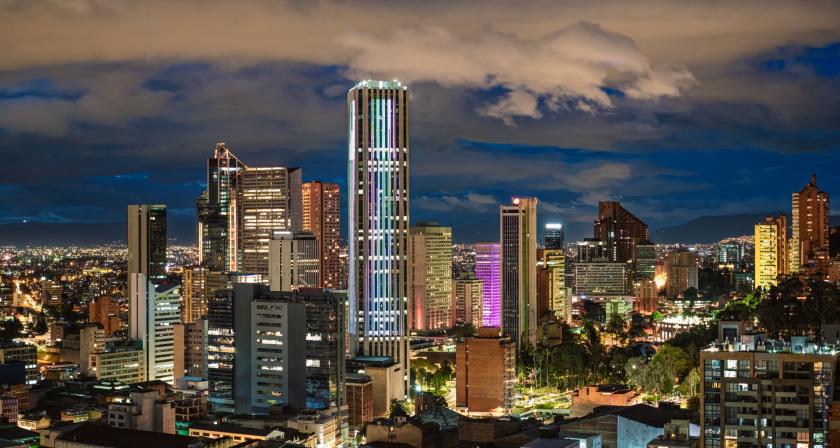
On July 10th, 2021 the Congress of the Republic of Colombia enacted Law 2099 of 2021 (the "Energy Transition Law"), whereby specific articles of Laws 56 of 1981, 142 of 1994, 143 of 1994, and 1715 of 2014 are amended as some other provisions are enacted for the following purposes:
- Strengthen the energy transition to non-conventional renewable energy sources ("FNCER");
- Revitalize and reactivate the energy market;
- Strengthen electric power and fuel gas public utilities.
In accordance with these purposes, it was determined that: "the promotion, encouragement, and incentive to the development of production, usage, storage, administration, operation and maintenance activities of non-conventional energy sources, mainly those of a renewable nature, as well as the efficient use of energy, are declared as a matter of public utility and social, public interest and national convenience," generating legal certainty for the projects to be carried out, due to the primacy of the collective interest over the rights of individuals.
The Energy Transition Law is thus born with the great challenge of making a leap towards energy transition (hence its name) to allow the sustainable use of resources and guarantee energy supply while generating a positive impact on the environment.
Regulatory developments
This Law recognizes blue and green hydrogen as FNCER and is also a commitment to strengthen actions against climate change and the consolidation of the energy transition, introducing regulatory changes that modernize the sector.
Thus, some normative novelties are the following:
- Strengthening the energy transition by ratifying the tax benefits established in Law 1715 of 2014 for energy generation projects based on FNCER [1]
- The regulation of geothermal energy generation is strengthened by extending its regulation, particularly with the creation of the geothermal registry, and establishing the penalties applicable to those who violate these provisions;
- New measures were included to stimulate the market, speed up and facilitate the procedures and licenses required for the development of new projects; and
- Provisions are incorporated to encourage zero and low-emission transportation and guarantee continuity in the provision of electric energy services.
We hereby present a brief summary of the aforementioned:
Tax benefits
The regulatory developments regarding the tax benefits mentioned above are as follows:
1. Deduction of investments
Although Article 8º of Law 2099 modifies Article 11 of Law 1715 of 2014 (which regulates the special deduction of 50% of investments), in essence, the benefit, conditions, and limitations for its application are maintained.
According to the regulation, income taxpayers who directly make investments in the field of energy production with FNCER and efficient energy management (including investments in intelligent metering) will be entitled to deduct 50% of the total investment made, in a period not exceeding 15 years, counted from the fiscal year following the year in which the investment has come into operation.
2. VAT exclusions
Regarding VAT exclusion, Article 9º of the Energy Transition Law amended Article 12 of Law 1715 of 2014. However, the exclusion established by Law 1715 of 2014 is maintained, except for the fact that: (i) it was extended to national or imported equipment, elements, machinery, and services that are intended for pre-investment and investment; and (ii) applies to all services rendered in Colombia or abroad regulated by the foreseen Law.
3. Tariff incentive
Article 10º of the Energy Transition Law maintains the same incentive for importing machinery, equipment, materials, and inputs exclusively for pre-investment and investment in generation projects with FNCER. Furthermore, the VAT exclusion is extended to the import of equipment, materials, among others, for implementing energy efficiency measures, including intelligent metering equipment, within the framework of the Rational and Efficient Use of Energy and Non-Conventional Sources Program - PROCURE, and that contribute to the fulfillment of the goals outlined in the Indicative Action Plan of the Ministry of Mines and Energy.
However, as stated in the original version of Law 1715, these benefits will apply only to machinery, equipment, materials not produced by the domestic industry.
4. Accelerated depreciation of assets
Finally, the benefit of accelerated depreciation of assets became more attractive as the cap for annual depreciation increased from 20% to 33.33%. Consequently, the taxpayer will be able to depreciate the assets subject to the benefit in 3 years and not in 5 years, as was the case with the Law 1715 of 2014.
Article 11 of the Energy Transition Law ratified that the FNCER generation activity involves an accelerated depreciation regime, which applies to machinery, equipment, and civil works necessary for the pre-investment, investment, and operation of the projects, extending it to the efficient energy management measures, including intelligent metering equipment, which is acquired and/or built exclusively for these purposes, as of the effective date of this Law.
For these purposes, the regulation gives the taxpayer the freedom to define the depreciation rate, which may not be higher than 33.33% as an annual global rate, except in cases where the Law authorizes a higher global percentage. In any case, if the taxpayer wishes to change the depreciation rate from one year to another, it must previously communicate it to the DIAN and may not exceed the limit indicated above.
In any case, to access this treatment, the investment must be evaluated and certified as an electric power generation project from FNCER or efficient energy management project within the framework of PROURE, by the Mining-Energy Planning Unit (Unidad de Planeación Minero-Energética -UPME).
Finally, according to the Energy Transition Law, the tax and tariff benefits and tax treatments explained above will continue to be in force for a term of 30 years, starting July 1, 2021. Once this term has expired, the investments, goods, and services will have the general tax treatment and will not enjoy unique tax treatments.
Geothermal Energy
As mentioned, the Energy Transition Law created a registry for all those projects intended to explore and exploit geothermal energy. The Ministry of Mines and Energy, or the entity designated by it, is responsible for (i) establishing special registration conditions for those projects already existing for the co-production of electric energy and hydrocarbons; (ii) adopting the necessary measures to avoid the overlapping of projects, within which it may define the areas that will not be subject to registration; and (iii) determining the conditions, terms, requirements, and obligations under which the interested parties will obtain, maintain and lose this registration.
Likewise, the conducts that are considered infringements to the activities of exploration and exploitation of geothermal resources for the generation of electric energy were established, as the following:
- Develop exploration and/or exploitation activities of the geothermal resource without registering the Ministry of Mines and Energy project.
- Failure to comply with the information and data requirements established by the Ministry of Mines and Energy or the entity delegated by it.
- Develop the geothermal resource's exploration and/or exploitation activities exceeding the object or geographic extension of the geothermal area's registration.
- Causing damage to the geothermal reservoir under registration.
- Failure to comply with the technical standards established for this type of project.
- Not to develop activities once the geothermal registration has been obtained under the conditions and terms established by the Ministry of Mines and Energy.
The penalties for these conducts shall be as follows: (i) Admonition; (ii) Order to immediately suspend all or some of the activities of the offender; (iii) Fines of up to one hundred twelve thousand (112,000) Tax Value Units UVT at the time of imposition of the sanction, in favor of the Ministry of Mines and Energy; and (iv) Suspension or cancellation of the exploration and/or exploitation registration.
Speed up of procedures for electricity projects
Finally, the regulation establishes measures to stimulate the market, speeding up the procedures and licenses required for the development of new projects:
- Prioritizes environmental licensing and its modifications for those energy and gas projects with an entry date of fewer than two years without the procedures mentioned above having been completed. Projects’ operation guarantees safety, reliability, and efficiency to meet the needs of the system. In these cases, the evaluation process of the Environmental Impact Study will begin when the investor has prepared and filed it before the respective environmental authority, without prejudice to the procedures that the applicant must carry out before other authority;
- Judges could authorize the entry to the property and execute the respective works in the processes of public easement of electric energy transmission without previously carrying out the judicial inspection. For this purpose, the police authorities are empowered to guarantee the effectiveness of the judicial order;
- A signature of a voluntary intervention agreement is available for owners, possessors, or heirs of properties on which electric power transmission works will occur, granting the execution of the required project without prejudice to the project manager continuing the process of voluntary alienation expropriation or easement, as appropriate.








